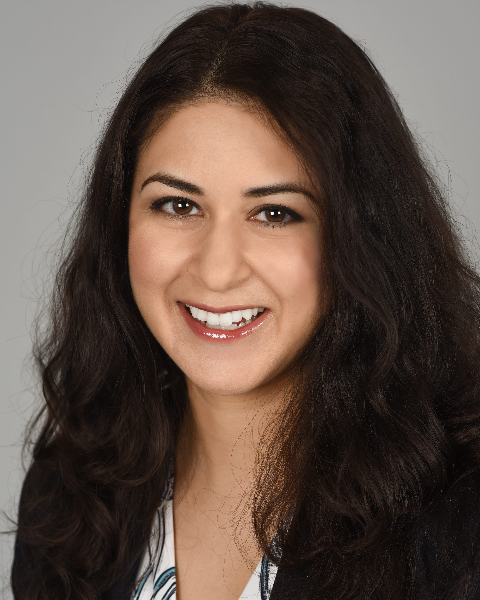PQA 01 - PQA 01 Lung Cancer/Thoracic Malignancies and Diversity, Equity and Inclusion in Healthcare Poster Q&A
2067 - Demographic Attributes among ASTRO Fellow Awardees between 2006 and 2023
Sunday, September 29, 2024
2:45 PM - 4:15 PM ET
Location: Hall C
Screen: 5

Sophia Kamran, MD
Massachusetts General Hospital
Boston, MA, United States
Presenter(s)
S. C. Kamran1, I. Pompa1, A. Niemierko1, A. M. Arnone2, C. E. Curtin V3, R. M. Morrell4, C. N. Madu5, I. C. Gibbs6, and C. Deville Jr7; 1Massachusetts General Hospital, Boston, MA, 2American Society for Radiation Oncology, Arlington, VA, 3Test Company, Anywhere, VA, United States, 4Advanced Radiation Center of Beverly Hills, Los Angeles, CA, 5Department of Radiation Medicine, Northwell Health Cancer Institute, Lake Success, NY, 6Department of Radiation Oncology, Stanford University School of Medicine, Stanford, CA, 7Department of Radiation Oncology and Molecular Radiation Sciences, Johns Hopkins University School of Medicine, Baltimore, MD
Purpose/Objective(s): The ASTRO Fellow (FASTRO) designation is awarded to individuals who demonstrate service and contributions to the radiation oncology field. It is typically reserved for those with >15 years of ASTRO membership, although exceptions exist. We sought to characterize the demographic composition of FASTRO awardees to date to determine the representation of honorees, particularly in comparison to ASTRO membership demographics. Materials/
Methods: FASTRO awardees between 2006 and 2023 were assessed. Demographic data was extracted, including self-identified gender, race/ethnicity, years of ASTRO membership at the time of award, type of practice, geography (US vs international), and region (if US-based). Proportions of awardees overall were described by the aforementioned characteristics, and underrepresented in medicine (URM) status. Proportions for gender, URM, and geography were compared with ASTRO membership demographics using chi-square analysis.
Results: Of 451 awardees, 19% (n=86) were women, while 75% were men (6% unknown). Most awardees were radiation oncologists (85%), followed by medical physicists (11%), and radiation biologists (4%). Sixty-nine percent of awardees were from academic practice. Median number of years of ASTRO membership was 29 (range, 11-65). Women awardees had fewer years of ASTRO membership than men (median 25 vs 29 years, respectively, median test with continuity correction p=0.03). 92% of awardees were from the US while 8% were international, a proportion significantly lower than the proportion of international ASTRO members (1366/5604, 24.4%, p<0.001). Of those from the US, most recipients were from the South. Of those with self-identified race/ethnicity, 17/341 (5.0%) were URM, which was lower than URM self-identified ASTRO members (538/4595, 11.7%; p=0.0002). Of those with self-identified gender, 86/424 (20.3%) were women, also lower in proportion compared to self-identified women ASTRO members (1569/5324, 30%; p<0.001). There were 15 awardees with <15 years of ASTRO membership; 3/15 (20%) were women, and 1/15 (6.7%) were URM.
Conclusion: The current FASTRO awardees are less reflective of the current ASTRO members concerning gender, geography, and URM status. Further investigation of these disparities and evaluation of award methodology and selection are needed to ensure future equitable awarding of FASTRO designation to ASTRO members and volunteers reflective of the society’s workforce.
Purpose/Objective(s): The ASTRO Fellow (FASTRO) designation is awarded to individuals who demonstrate service and contributions to the radiation oncology field. It is typically reserved for those with >15 years of ASTRO membership, although exceptions exist. We sought to characterize the demographic composition of FASTRO awardees to date to determine the representation of honorees, particularly in comparison to ASTRO membership demographics. Materials/
Methods: FASTRO awardees between 2006 and 2023 were assessed. Demographic data was extracted, including self-identified gender, race/ethnicity, years of ASTRO membership at the time of award, type of practice, geography (US vs international), and region (if US-based). Proportions of awardees overall were described by the aforementioned characteristics, and underrepresented in medicine (URM) status. Proportions for gender, URM, and geography were compared with ASTRO membership demographics using chi-square analysis.
Results: Of 451 awardees, 19% (n=86) were women, while 75% were men (6% unknown). Most awardees were radiation oncologists (85%), followed by medical physicists (11%), and radiation biologists (4%). Sixty-nine percent of awardees were from academic practice. Median number of years of ASTRO membership was 29 (range, 11-65). Women awardees had fewer years of ASTRO membership than men (median 25 vs 29 years, respectively, median test with continuity correction p=0.03). 92% of awardees were from the US while 8% were international, a proportion significantly lower than the proportion of international ASTRO members (1366/5604, 24.4%, p<0.001). Of those from the US, most recipients were from the South. Of those with self-identified race/ethnicity, 17/341 (5.0%) were URM, which was lower than URM self-identified ASTRO members (538/4595, 11.7%; p=0.0002). Of those with self-identified gender, 86/424 (20.3%) were women, also lower in proportion compared to self-identified women ASTRO members (1569/5324, 30%; p<0.001). There were 15 awardees with <15 years of ASTRO membership; 3/15 (20%) were women, and 1/15 (6.7%) were URM.
Conclusion: The current FASTRO awardees are less reflective of the current ASTRO members concerning gender, geography, and URM status. Further investigation of these disparities and evaluation of award methodology and selection are needed to ensure future equitable awarding of FASTRO designation to ASTRO members and volunteers reflective of the society’s workforce.
